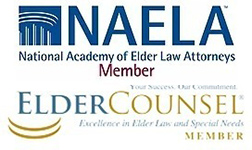Reverse Mortgages: A Way to Remain at Home Longer
 Under our “system” of paying for long-term care, you may be able to qualify for Medicaid to pay for nursing home care, but in most states there's little public assistance for home care. Most people want to stay at home as long as possible, but few can afford the high cost of home care for very long. One solution is to tap into the equity built up in your home.
Under our “system” of paying for long-term care, you may be able to qualify for Medicaid to pay for nursing home care, but in most states there's little public assistance for home care. Most people want to stay at home as long as possible, but few can afford the high cost of home care for very long. One solution is to tap into the equity built up in your home.
If you own a home and are at least 62 years old, you may be able to quickly get money to pay for long-term care (or anything else) by taking out a reverse mortgage. Reverse mortgages, financial arrangements designed specifically for older homeowners, are a way of borrowing that transforms the equity in a home into liquid cash without having to either move or make regular loan repayments. They permit house-rich but cash-poor elders to use their housing equity to, for example, pay for home care while they remain in the home, or for nursing home care later on. The loans do not have to be repaid until the last surviving borrower dies, sells the home or permanently moves out. (Warning: If both spouses are not on the reverse mortgage deed and the spouse who is on the deed dies first, the surviving spouse would be required to repay the mortgage loan in full or face eviction.)
In a reverse mortgage, the homeowner receives a sum of money from the lender, usually a bank, based largely on the value of the house, the age of the borrower, and current interest rates. The lower the interest rate and the older the borrower, the more that can be borrowed. To find out how much you can get for your house, use a reverse mortgage loan calculator.
Homeowners can get the money in one of three ways (or in any combination of the three): in a lump sum, as a line of credit that can be drawn on at the borrower's option, or in a series of regular payments, called a “reverse annuity mortgage.” The most popular choice is the line of credit because it allows a borrower to decide when he or she needs the money and how much. Moreover, no interest is charged on the untapped balance of the loan.
Although it is often assumed that an elderly person would want to use the funds from a reverse mortgage loan for health care, there are no restrictions–the funds can be used in any way. For instance, the loan could be used to pay back taxes, for house repairs, or to retrofit a home to make it handicapped-accessible.
Borrowers who take out a reverse mortgage still own their home. What is owed to the lender — and usually paid by the borrower's estate — is the money ultimately received over the course of the loan, plus interest. In addition, the repayment amount cannot exceed the value of the borrower's home at the time the loan is repaid. All borrowers must be at least 62 years of age to qualify for most reverse mortgages. In addition, a reverse mortgage cannot be taken out if there is prior debt against the home. Thus, either the old mortgage must be paid off before taking out a reverse mortgage or some of the proceeds from the reverse mortgage used to retire the old debt.
The most widely available reverse mortgage product — and the source of the largest cash advances — is the Home Equity Conversion Mortgage (HECM), the only reverse mortgage program insured by the Federal Housing Administration (FHA). However, the FHA sets a ceiling on the amount that can be borrowed against a single-family house, which is determined on a county-by-county basis. High-end borrowers must look to the proprietary reverse mortgage market, which imposes no loan limits. The national limit on the amount a homeowner can borrow is $765,600.
Reverse mortgages are not right for everyone. Consult with your attorney about whether a reverse mortgage fits into your long-term care planning.

